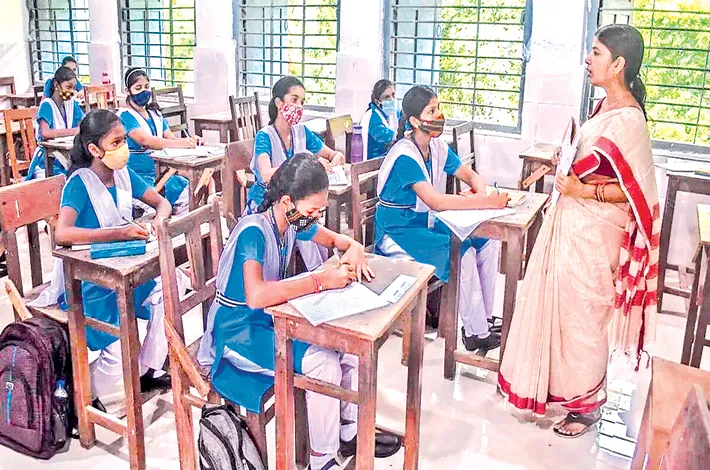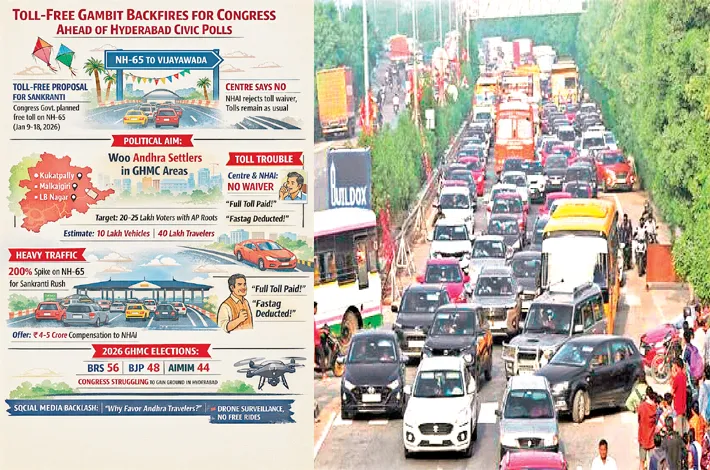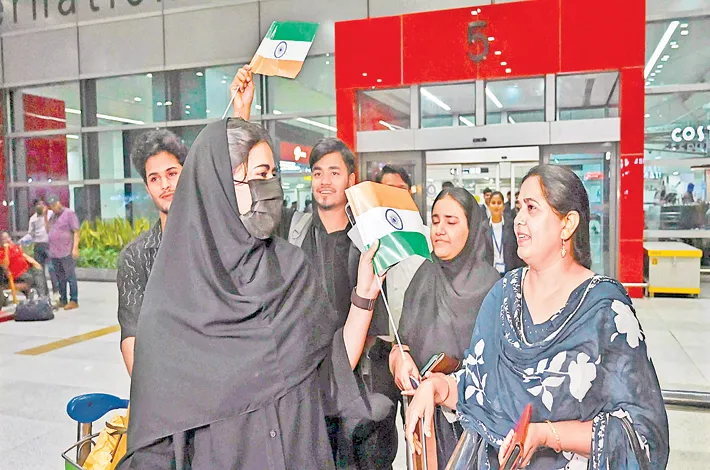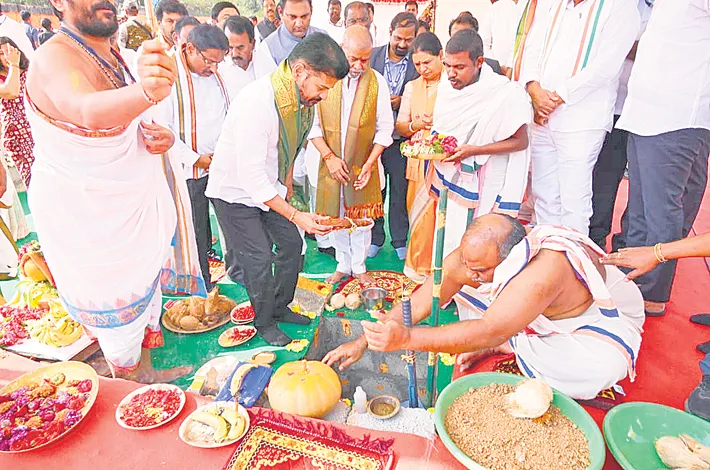Non-Teaching Duties swallow Time
16-11-2025 12:00:00 AM

The teaching time of school teachers across the state is steadily shrinking. A large portion of their day is being consumed by non-teaching responsibilities such as managing mid-day meals, filing online reports, maintaining records, preparing documentation, complex meetings, and FRS (Facial Recognition System) attendance. Teachers express concern that these tasks are overshadowing teaching, the very purpose of their profession.
“Sujatha’s experience” — A Story shared by thousands of Teachers
“Sujatha was thrilled when she secured a government teaching job. She dreamt of providing quality education to poor students studying in government schools and helping them succeed like the best-performing students. But upon joining her duties, she realized the harsh reality. Instead of teaching, her days were filled with FRS (Facial Recognition System) attendance, mid-day meal responsibilities, meetings, report submissions, documentation, marks uploading, distributing books, notebooks, workbooks, entering details in UDISE, checking whether the school premises and toilets were cleaned properly, verifying library records, and several such non-teaching tasks. These duties drained her energy and enthusiasm. She sighed, saying, ‘I expected teaching… but everything except teaching is taking up my time.’”
Sujatha is not alone. This is the reality for thousands of teachers across the state. Adding to the burden are election duties, census duties, caste surveys, family surveys, and other government assignments that further eat into teaching time.
Even though the government launches ‘Badi Baata’ enrollment campaigns at the beginning of the academic year to increase student admissions, questions are now rising: If teachers do not get enough time inside the classroom, how will they deliver quality education to the children who join government schools?
Quality Education out of reach
Poor students studying in government schools are struggling to receive quality education. Teachers say that decisions taken by senior officials and tasks assigned merely to impress higher authorities are wasting teachers’ classroom time. They allege that they are being used for clerical duties rather than teaching.
Various reports, data collection, meetings, and daily non-teaching assignments are consuming their teaching hours. Orders from officials to send “this report or that report” leave teachers racing against time, pushing teaching to the background. Schools with inadequate staff are impacted even more severely.
“Why Are these responsibilities given to us?”, rue teachers
Teachers say their fundamental role is to come to school on time and teach. But now, teaching has become secondary. Almost every day, they spend hours preparing reports, uploading marks, attending Zoom meetings, participating in complex-level gatherings, and often district collector meetings.
A primary school teacher shared his frustration: “In some places, teachers even have to ride their bikes to fetch rice for mid-day meals. How is this our job? Are we here to teach or to manage all these tasks?”
Many teachers feel afraid to raise these issues with their higher officials, fearing disciplinary action. A small mistake in any administrative task could result in suspension.
Supervision of mid-day meals is another major worry — even minor deviations or food quality issues could lead to punitive action against teachers.
In several districts, teachers are being appointed as nodal officers and inspection team members to monitor schools. This raises concerns: If teachers are doing inspections outside, who will teach in their own schools?
One Day a Week must be reserved for Non-Teaching tasks, says P. Rajabhanu Chandraprakash, State President, Gazetted Headmasters Association
He argues that teachers must be allowed to spend maximum time inside classrooms to improve learning outcomes.
His suggestion: Five days a week should be exclusively allotted for teaching and the sixth day should be dedicated only to non-teaching responsibilities. According to him, only then will students truly receive quality education in government schools.








